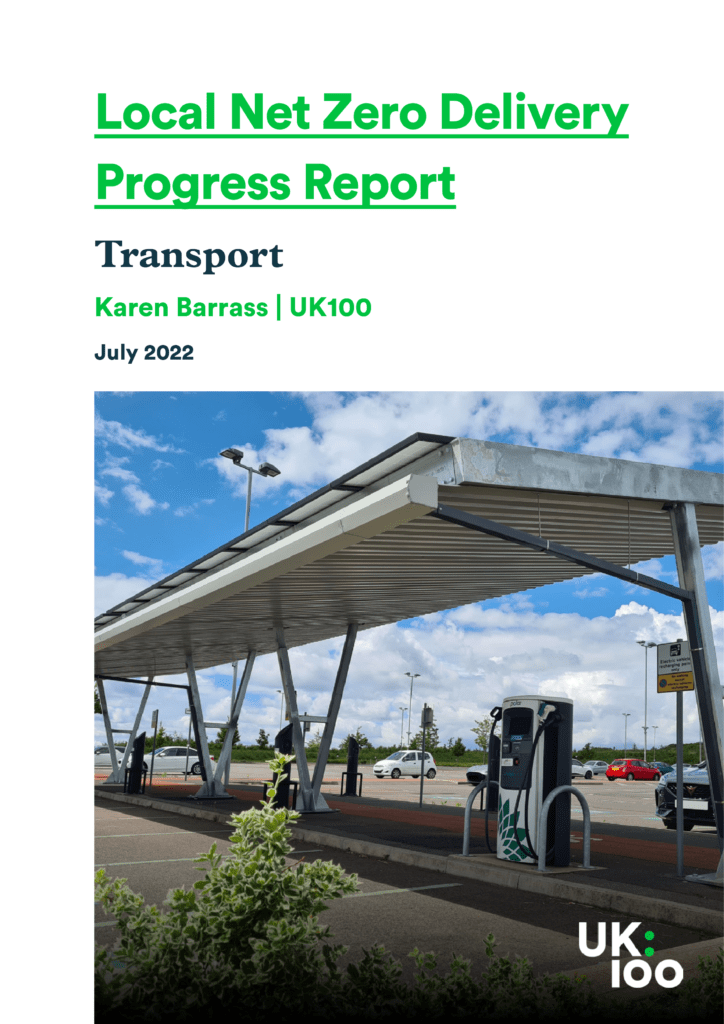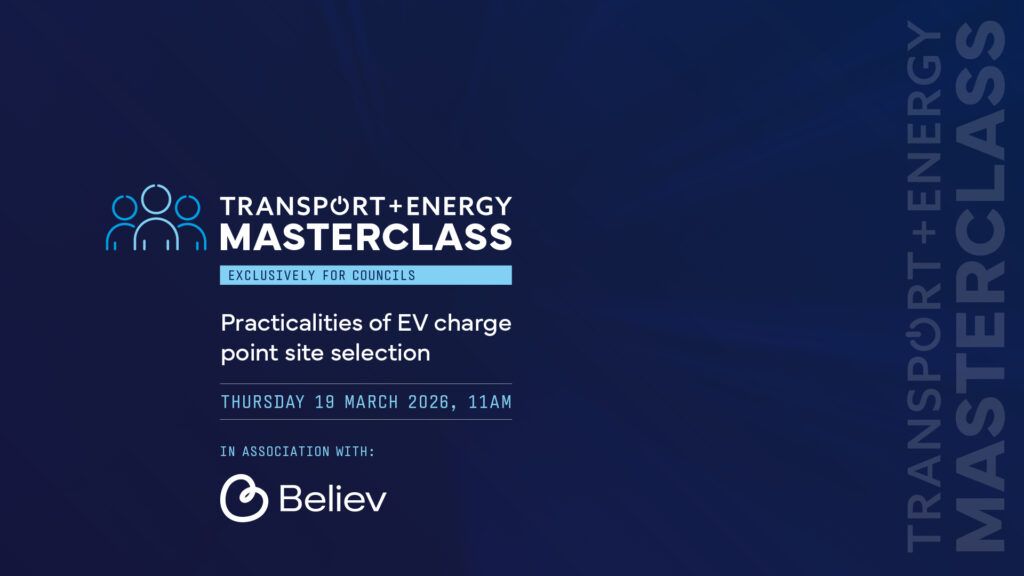In this exclusive comment piece, Andy D’Agorne, Deputy Leader of the Council, Executive Member for Transport, City of York Council discusses UK100’s Local Net Zero Delivery Progress report.
Transport accounts for 28% of all UK emissions. Emissions increased by 4.7%, with transport emissions increasing by 10% in 2021.
Of course, the record rise is largely a foreseen “bounce back” from the pandemic and the easing of restrictions on travel. But it goes to show how vital it is to reduce the traffic on our roads and decarbonise it too.
And with a new Prime Minister about to be selected amidst a fuel price crisis, now is the time to drive home the importance of Net Zero transport, building on the lead of the current Transport Secretary Grant Shapps.
Following the release of the Government’s Transport Decarbonisation Plan and the Net Zero Strategy last year, 2022 should have been a year of delivery. But a new UK100 report, billed as the local authority version of the Climate Change Committee (CCC) report to Parliament, lays bare the slow pace of change.
UK100 is the only network of local leaders committed to Net Zero and Clean Air, of which the City of York Council is proud to be a part. More than 100 UK100 members have pledged more ambitious Net Zero deadlines than the Government’s current 2050 target with York pledging to 2030 as climate experts recently said was essential to keep temperature rises as close to the Paris Agreement as possible.
The UK Local Net Zero Delivery progress report on Transport, building on the latest damning CCC publication, finds that the ambition of local councils has been stifled by a lack of access to sustainable funding for Net Zero action. The report zones in on bus improvement and electric vehicle charging funding.

The Government has repeatedly acknowledged the importance of a low carbon, accessible network in its Bus Service Improvement Plan (BSIP). But, of the almost 80 bids submitted by local authorities for bus service improvements, only 31 were funded.
Thankfully, due to the hard work of officers in preparing a compelling and well-informed bid, The City of York was successful and together with private investment from First Group we have used the funding to boost our zero emissions electric Park & Ride bus service, which is already the largest of its kind in the country, introduced in 2020 to comply with York’s unique bus-based Clean Air Zone.
We will soon have 65 all-electric buses on the roads, saving 1kg of CO2 for every kilometre travelled.
With that public-private funding partnership, we are making good on the Government’s recognition that: “leadership and climate action at a local level is also crucial because the vast majority of all transport journeys are local.” The City of York is also proof positive that the promise to: “collaborate with local authorities and other regional bodies to identify and support local solutions across the UK” can drive vital change.
But we know that every district, county, city council, unitary and combined authority is different. And more than 60% of them missed out on the Government funding we received.
Net Zero transport should not be a postcode lottery dependent on the type of council you have representing you and the level of competitive funding they are able to successfully secure.
Net Zero should be a collaboration, building on the good practice of the best to inform what might work well in other councils. Even the former Levelling Up Minister Michael Gove recognised the flaws of competitive funding, saying: “some local authorities simply don’t have the capacity to jump through all of those hoops.”
And that goes for electric vehicle charging too. The much-awaited £500m Local Electric Vehicle Infrastructure Fund (LEVI) is a welcome recognition that a lack of charging infrastructure is the biggest barrier to electric vehicle adoption. It is a significant step forward for rebalancing regional inequalities.
However, it will be distributed not by need but by competitive funding – again.
York has been successful in getting funding through competitive funding channels:
- OLEV’s Go Ultra-Low and ERDF for HyperHubs
- LEP for the EV asset renewal
- LEP for HyperHub 3
York has installed new EV charging points across city centre car parks over the past year and has two Hyper Hubs up and running at two of its Park & Ride sites.
However, a competitive funding process is always likely to favour bidders that already have significant expertise, experience and infrastructure and competitive funding is stifling progress.
The UK100 Local Net Zero Delivery progress report on transport supports the National Infrastructure Commission recommendation that we need to move away from competitive funding – especially for infrastructure and Net Zero projects.
The City of York has been an electric charging pioneer since 2013. We are zero-emission bus innovators too. We are proud to be leaders, but that does not mean we want to be outliers. We don’t want to pull the ladder up behind us. We want to see every village, town, and city given the support necessary to create a reliable and equitable Net Zero transport infrastructure. But that is clearly not happening with competitive funding.
Local authorities can learn from each other and DfT already has a very good practice exemplar on this – the Basecamp set up which allowed LTAs to discuss their BSIPs and Enhanced Partnerships. There is a role for that in other transport planning.
And it’s not all doom and gloom. Alongside the recently-launched local authority transport decarbonisation toolkits, which offer guidance on building business, developing innovative sustainable transport policies, securing funding and delivering measures on the ground, the BSIP and LEP do signal a positive way forward.
But to avoid emissions backsliding and a postcode lottery of Net Zero transport innovation, the incoming Prime Minister should make good on the former Levelling Up Minister’s promise and wean the Government off the beauty parade of competitive funding which drains hard-pressed council staff time and expertise making speculative bids. Sustainable support is the route to accelerating action on local Net Zero transport.
Images courtesy of UK100.












